Massachusetts Fake ID
1. Introduction to Massachusetts Fake IDs
The introduction should set the stage for what the article will explore in-depth. This includes an overview of what fake IDs are, their history, and why Massachusetts fake IDs have gained specific interest in the market.
Massachusetts fake IDs have become one of the hottest products in the underground identification market. For college students, young professionals, and others interested in using alternate identification methods, Massachusetts offers a unique appeal. Known for its prestigious universities and active nightlife, this state sees high demand for well-made fake IDs, with people seeking the perfect balance between authenticity and discretion.
Understanding the intricacies of these products, including how they’re created, how they’re used, and the potential legal implications, is crucial for those in the market. In this article, we will dissect all these aspects to give you a comprehensive look at Massachusetts fake IDs.
2. The Popularity of Fake IDs in the United States
This section delves into the broader context of fake ID use in the U.S., with special focus on Massachusetts.
2.1 The Cultural Context
Fake IDs have long been associated with underage drinking and access to clubs and bars. However, the use cases have expanded beyond this simple need. Many users seek fake IDs to explore options like getting into age-restricted events, or in rare cases, even renting cars or engaging in more covert activities. In Massachusetts, a hub for young adults, the demand for fake IDs is especially pronounced.
2.2 Why Massachusetts?
The state’s unique demographic and economic conditions contribute to the fake ID trend. Being home to prestigious universities like Harvard and MIT, Massachusetts sees a high influx of students from across the globe, many of whom are under the legal drinking age of 21. The demand for access to nightlife, events, and social gatherings fuels the need for fake IDs in cities like Boston and Cambridge.
3. Massachusetts Fake IDs: Product Features
This section covers the specific features that set Massachusetts fake IDs apart from others in the market. Detailing both physical and technical characteristics will help readers understand the level of sophistication involved.
3.1 Design and Appearance
The design of a Massachusetts fake ID mimics the real one to the most minute detail. Some of the key features include:
- Holograms: A Massachusetts ID contains several advanced holographic elements, which are difficult to replicate. However, high-quality fake IDs manage to include precise hologram placement.
- Microprint: This feature involves extremely small text that is difficult to read with the naked eye. Good-quality fake IDs replicate the microprinting found on genuine Massachusetts IDs.
- UV Ink: A critical security feature is the UV ink, which becomes visible under black light. Quality fake IDs ensure this feature is present to pass basic tests at bars and clubs.
3.2 Durability
Genuine Massachusetts IDs are made with a high level of durability, designed to last years of regular use. Many fake ID manufacturers now mimic this by using sturdy materials like PVC, ensuring that their product doesn’t wear out or look suspiciously fake after a few uses.
3.3 Scannability
One of the most important features of any modern ID, real or fake, is the ability to pass digital scanning systems. Massachusetts IDs feature barcodes and magnetic strips that contain encoded personal information. High-quality fake IDs can often mimic this feature, ensuring the barcode and strip pass through scanners without raising red flags.
4. Market Analysis: Massachusetts Fake IDs
In this section, we explore the fake ID market itself. Who sells these products, and who buys them?
4.1 Manufacturers and Sellers
Fake ID manufacturing has become a niche but growing industry, with many sellers using dark web platforms or anonymous online markets. In Massachusetts, you will find a wide array of suppliers offering IDs that mimic the state’s driver’s license or identification cards. Some vendors even claim that their fake IDs are “scanning proof” or “high fidelity,” terms used to convince potential buyers of their authenticity.
4.2 Customer Demographics
The typical customers purchasing Massachusetts fake IDs can be broken down into several categories:
- College Students: One of the largest customer bases, students under 21 often want fake IDs to gain access to parties, bars, and nightclubs.
- Young Professionals: Some people in their early 20s who may have lost or damaged their real ID might opt for a fake one while they wait for a replacement.
- Tourists: Tourists who come to Massachusetts and are unfamiliar with the local ID requirements might purchase fake IDs to avoid age restrictions.
4.3 Demand Trends
Massachusetts, especially cities like Boston, is home to several prestigious universities. This, combined with the state’s vibrant nightlife, creates an environment where fake ID demand remains consistently high. The demand spikes during the beginning of the school year and major event seasons like Halloween and St. Patrick’s Day.
5. The Legal Implications of Using a Fake ID
It’s important to address the legal aspects of fake IDs, as it forms a critical part of the buyer’s decision-making process.
5.1 Penalties for Possession
The state of Massachusetts has strict laws regarding fake identification. The possession or use of a fake ID can result in misdemeanor charges, fines, and even jail time, depending on the circumstances. For those caught using fake IDs to purchase alcohol, penalties can range from $300 fines to revocation of the individual's real driver’s license.
5.2 Seller Responsibility
Selling fake IDs is a felony in Massachusetts, and those found manufacturing or distributing these counterfeit products face serious consequences. Sellers often operate online, and the anonymity provided by the internet makes them difficult to track down. However, law enforcement agencies have been stepping up efforts to crack down on online fake ID sales.
5.3 The Consequences for Establishments
Establishments that unknowingly accept fake IDs also face risks. If a bar or club serves alcohol to a minor who used a fake ID, it can result in fines, license suspension, or closure. This leads many businesses to invest in advanced scanning technologies to better detect fake IDs.
6. Identifying a High-Quality Massachusetts Fake ID
This section gives a buyer’s guide on how to differentiate between a high-quality fake ID and a poor-quality one.
6.1 Physical Inspection
Look for signs of quality in the physical ID. Does it bend like a real one? Does the texture feel right? If the ID feels too flimsy or too rigid, it may be a fake.
6.2 Comparing to a Real ID
It’s always a good idea to compare a fake ID side-by-side with a real Massachusetts ID. Pay attention to the placement of elements like the state seal, microprinting, and even the color gradients.
6.3 Barcode and Magnetic Strip
Testing the barcode and magnetic strip with a scanning device can help ensure that the fake ID will pass a scan check at most establishments.
6.4 Use of UV Light
A quick test with UV light can reveal whether the fake ID includes the UV features present on legitimate Massachusetts IDs.
7. How Massachusetts Fake IDs Are Made
A step-by-step exploration of the process involved in creating a Massachusetts fake ID, from design to final product.
7.1 Materials Used
Quality fake IDs are typically made from the same materials as real ones, including PVC and Teslin. This ensures durability and realistic texture.
7.2 Printing Techniques
High-quality fake IDs are made using sophisticated printing technology, like high-definition printers that replicate details like holograms and microprint.
7.3 Encoding
Encoding the magnetic strip and barcode is one of the final steps. Many fake ID manufacturers use specialized software to ensure that the barcode contains valid data when scanned.
8. The Future of Fake IDs in Massachusetts
An exploration of trends in ID technology and how the fake ID market may evolve.
8.1 Evolving Security Features
As governments update their ID security features, fake ID manufacturers must constantly adapt. The inclusion of biometric data, for example, could pose a significant challenge for future fake ID makers.
8.2 Increased Law Enforcement Efforts
As the fake ID market continues to grow, law enforcement is also stepping up efforts to catch both sellers and buyers. With increased cooperation between local and federal agencies, we can expect to see more crackdowns on fake ID rings.
8.3 Alternatives to Fake IDs
With apps like Uber and Lyft making it easier for people to get around without a car, fewer people need fake IDs for purposes like car rentals. However, the demand for IDs to access age-restricted spaces like bars and clubs remains strong.
9. Conclusion
Summarizing the main points of the article and offering final thoughts on Massachusetts fake IDs.
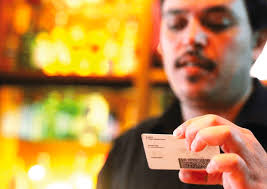 Maryland Fake ID
Maryland Fake ID
 Alabama Fake ID
Alabama Fake ID
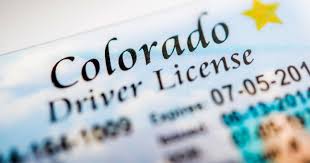 Massachusetts Fake ID
Massachusetts Fake ID
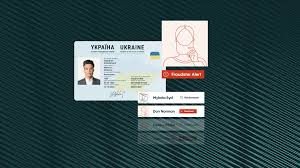 Ontario Fake ID
Ontario Fake ID
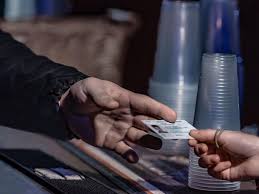 North Carolina Fake ID
North Carolina Fake ID
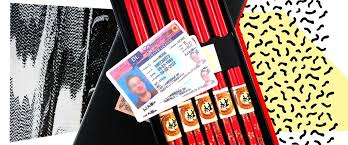 New Jersey Fake ID
New Jersey Fake ID
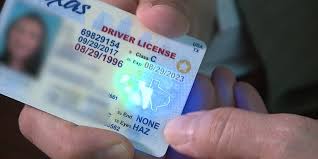 Kansas Fake ID
Kansas Fake ID

